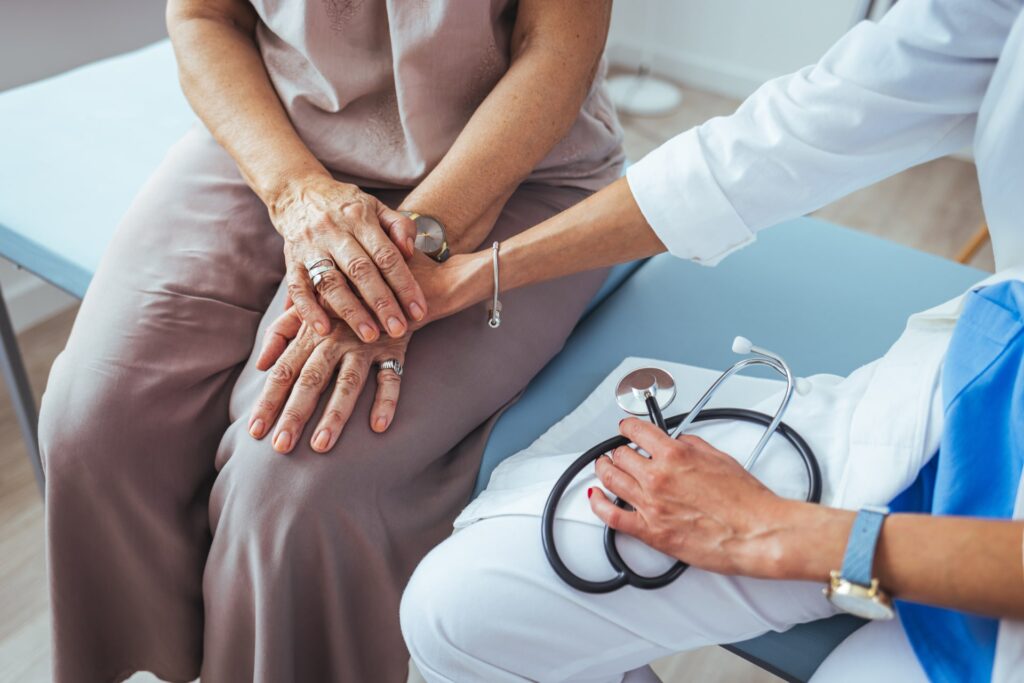Our microsurgeons can provide several post-mastectomy microsurgical breast reconstructive options. Free tissue transfer, (i.e. DIEPs, PAPs, TUGs, SGAPs, stacked flaps) is a highly successful microsurgical procedure which transfers tissue from a region of the body to the breast. In properly selected patients our expert team has extremely successful outcomes with a low complication rate.
WHAT IS A PAP FLAP?
PAP flap surgery is a reconstructive surgery that transfers the patient’s fat, skin, and blood vessels from the back of the thighs just underneath the buttocks crease to rebuild the breast. PAP flap, abbreviated from profunda artery perforator, works by transferring these tissues with a vascular pedicle. The vascular pedicle is anastomosed to the blood vessels in the chest and the tissues are effectively transplanted to reconstruct the breast tissue. PAP flaps are usually performed when patients are not candidates for DIEP flaps. To achieve the best results with low complications microsurgical breast reconstruction should only be performed by plastic surgeon who have specialized training and experience in microsurgery procedures.
HOW IS PAP FLAP RECONSTRUCTION PERFORMED?
During a PAP flap surgery, tissues from the patient’s posterior thigh(s) are surgically removed and then the blood vessels are attached to blood vessels in the chest. The tissues are then shaped to form a new breast. Tissue can be taken from one thigh or both depending on the size of the breast to reconstruct or if it’s a unilateral or bilateral breast reconstruction.
Most patients have a staged approach with includes placement of tissue expanders at the time of mastectomy, followed by removal of the expanders and then definitive breast reconstruction with PAP flaps. A subset of patients will have PAP flaps done at the time of mastectomy when indicated. In both cases there is usually an additional minor contouring surgery for the breasts as well as the thighs. After these stages are completed there are no additional maintenance surgeries necessary. Alongside these benefits, patients who undergo this procedure generally benefit from improved posterior thigh contours. The upper thigh horizontal scars left from a PAP flap procedure usually heal well and can be concealed within the lower buttock crease.
THE PAP FLAP SURGICAL EXPERIENCE
For patients receiving PAP flap reconstruction, we use an enhanced recover after surgery (ERAS) protocol. This begins pre-operatively by the use of non-narcotic medications and then nerve blocks in the back. Our ERAS protocols continue during the surgery and then postoperatively. This allows patients to have minimal discomfort after surgery without the use of narcotics. Patients are able to recover more quickly and are usually discharged from the hospital 72 hours after completion or surgery.
LENGTH OF SURGERY AND NUMBER OF DAYS ADMITTED
The length of surgery for one breast (unilateral PAP) will take approximately 6-8 hours and for both breasts (bilateral PAP) will take 8-10 hours. Once the surgery is complete, patients will be moved to the recovery room for several hours where specialized nurses will monitor the flaps for any complications. In addition, the surgeons use an infrared tissue oximeter which allows them in real time to remotely monitor the tissues for complications together with the nurses. After a few hours in the recovery room patients are transferred to either an intermediate care or surgical ICU where the nurses continue to monitor the flaps as well as continue the ERAS protocols. Most patients are discharged 72 hours after completion of surgery where they can continue to rest and recover at home.
RECOVERY TIMELINE AND LIMITATIONS
Our surgeons will provide the patient with specific instructions and follow up for their recovery. This includes providing detailed information on how to care for dressings, stitches, surgical drains, as well as how to monitor the flaps for any changes.
It can take eight to ten weeks for patients to fully recover from PAP Flap reconstructive surgery. During that time patients should be moving/walking around a fair amount but should refrain from doing anything which feels like physical work. After 8 weeks patients can return to physical activity but should ease into activities over a two week period.
PAP FLAP SURGERY
Our team works with local plastic surgeons across the region to provide patients with expert complex microsurgical breast reconstruction so they do not have to travel distances to receive care. Our surgeons specialize in microvascular tissue transfers and work with the latest techniques to help patients recover from breast cancer surgery and get back to living their lives.

